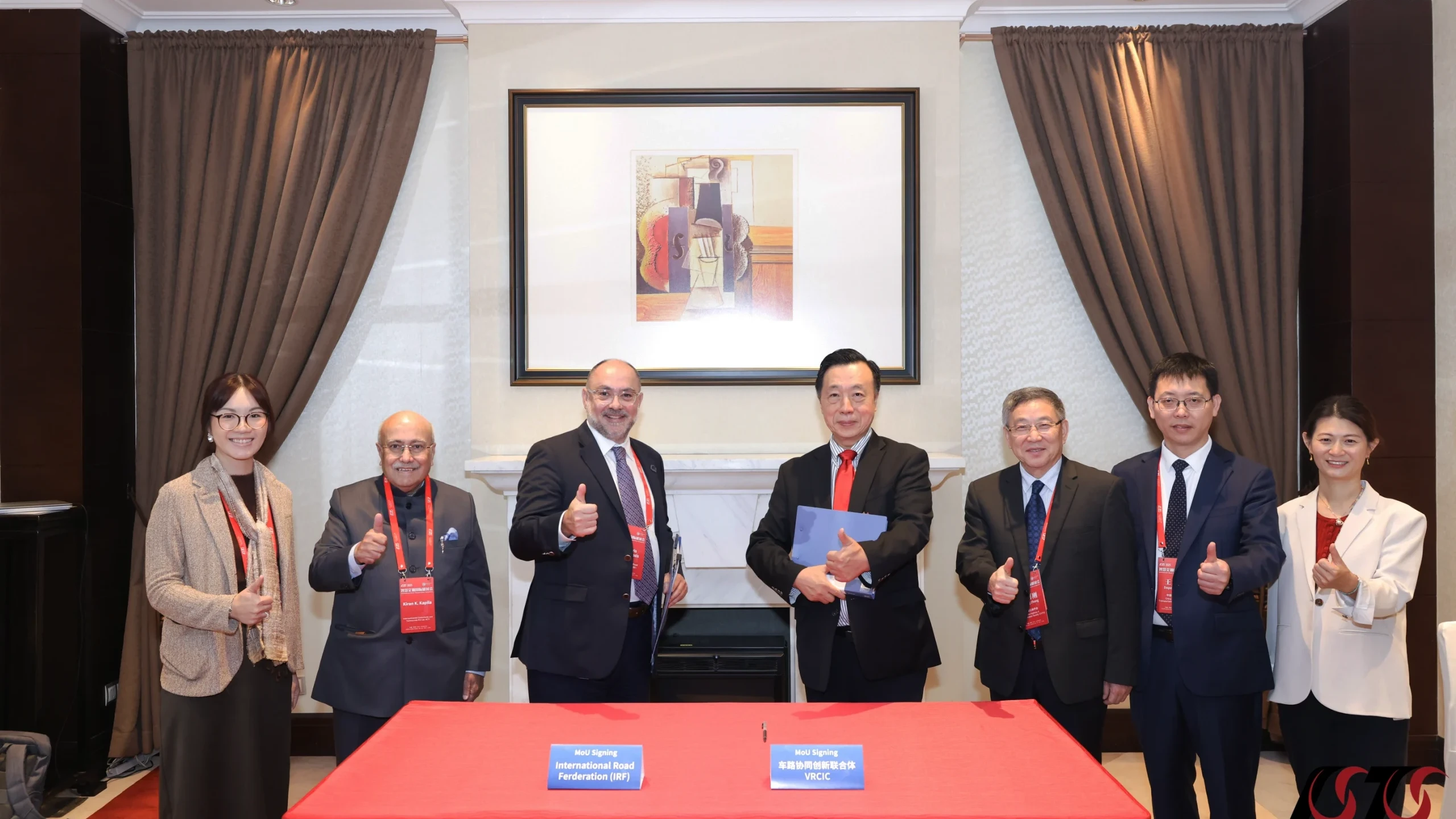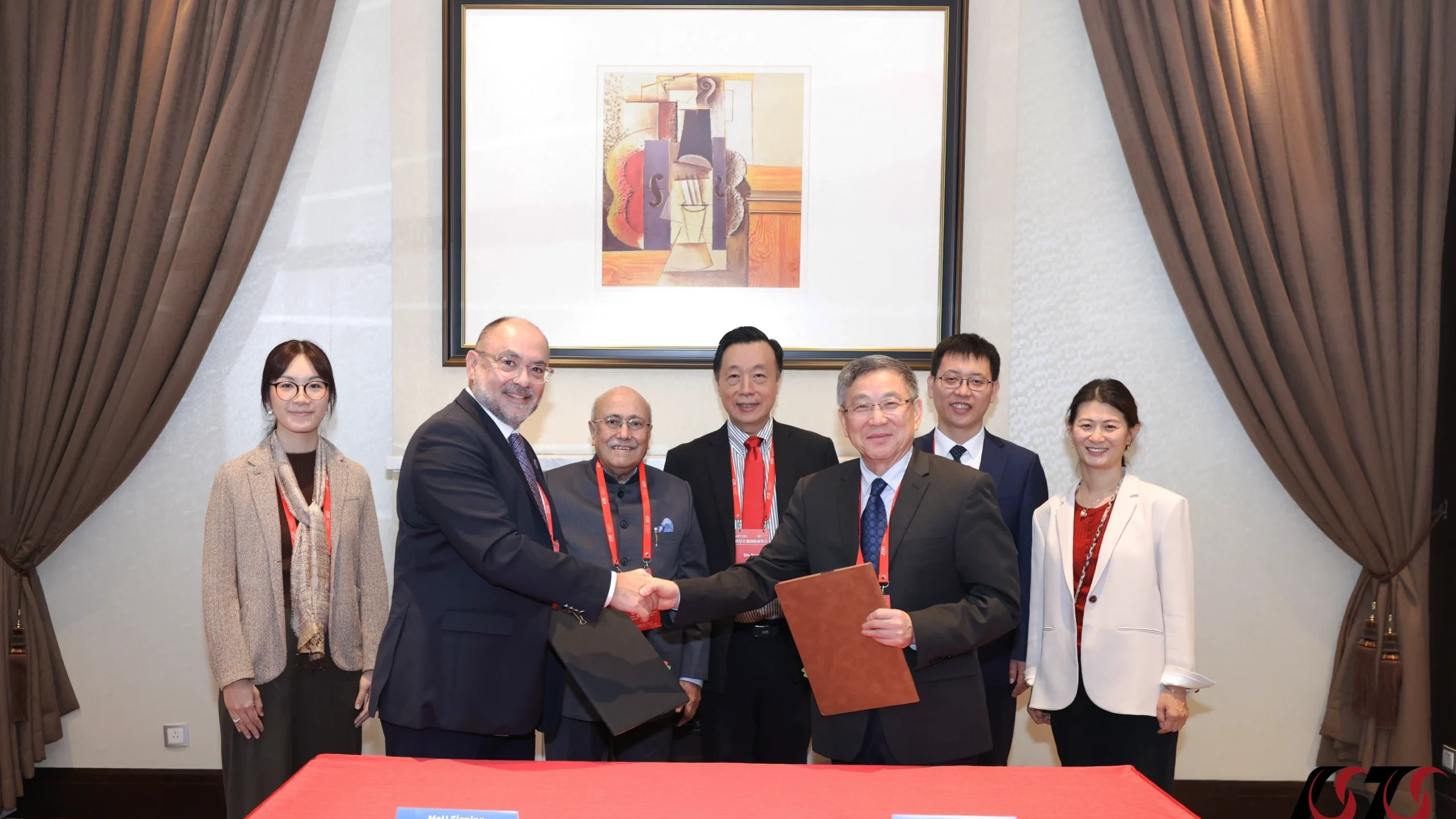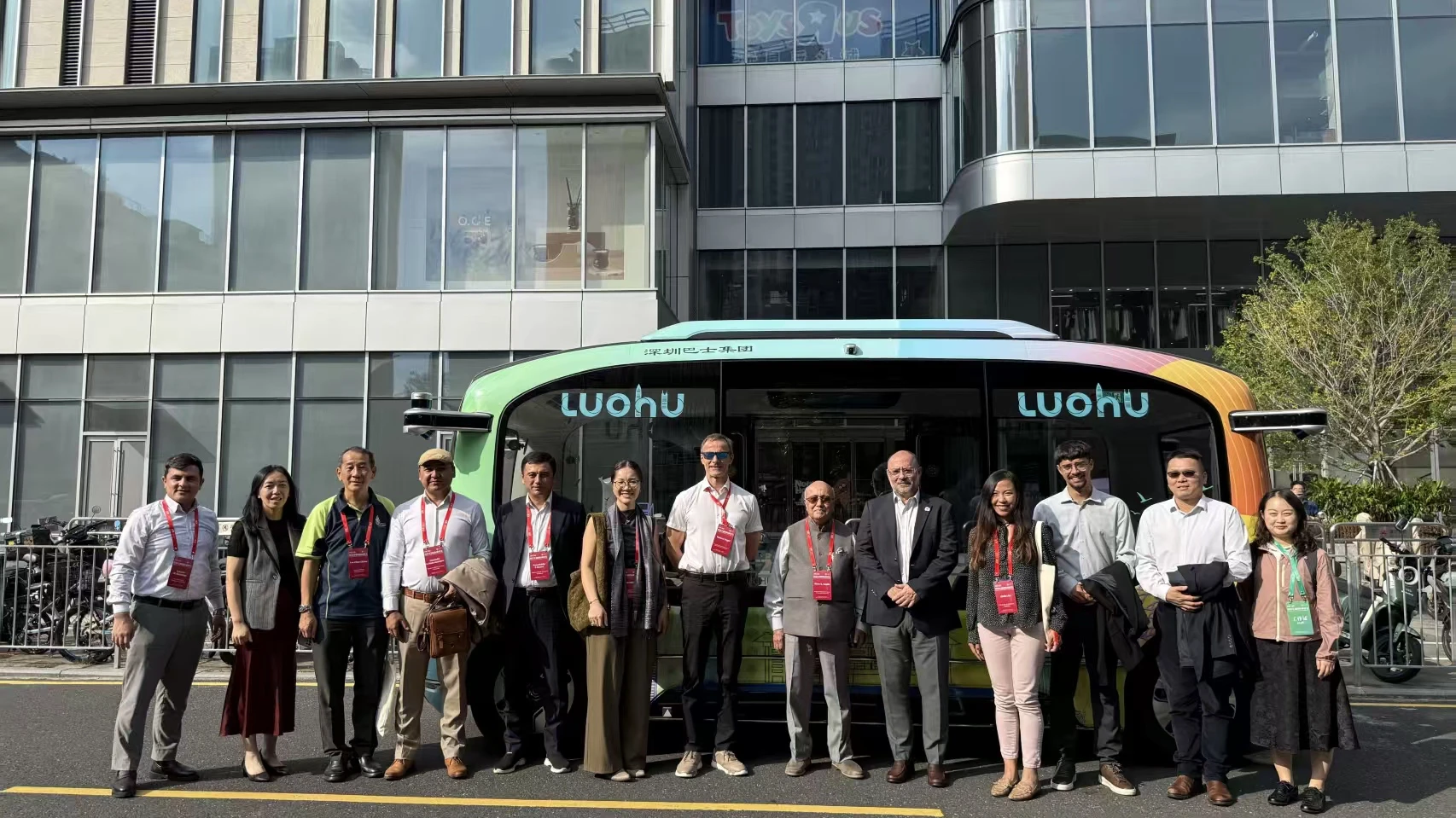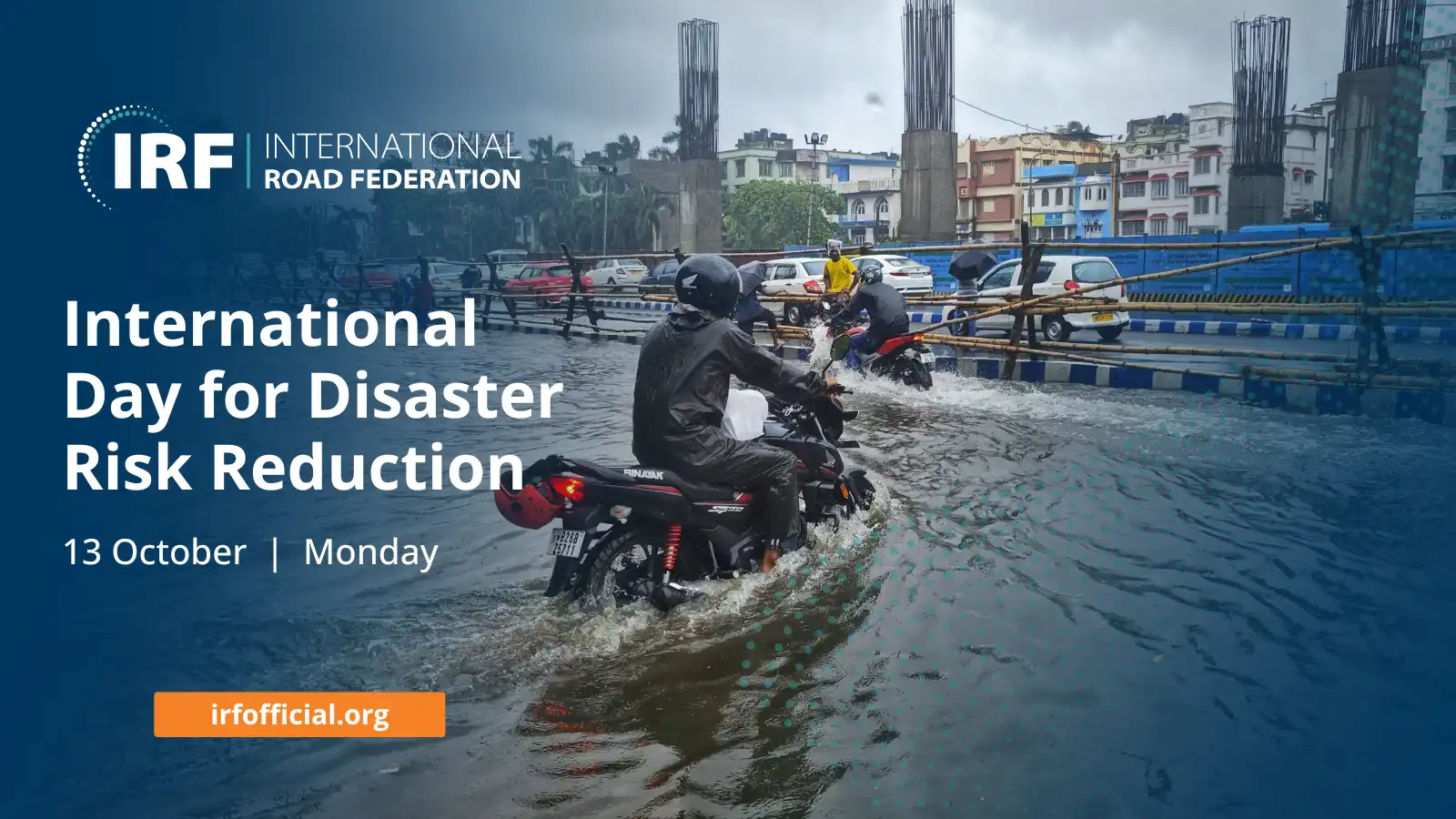Doha Hosts International Training on Work Zone Safety Management
Doha, Qatar | 28 – 30 September 2025 – IRF Lead Trainer Miguel-Angel Serrano Santos with Dr. Wael Alhajyaseen, Elise Freeman and Dave Tilton led the Work Zone Safety Management Training hosted by the Qatar Transportation and Traffic Safety Centre (QTTSC) College of Engineering at Qatar University.
The Training was jointly organised by the IRF, the World Conference on Transport Research Society Young Researchers’ Initiative (WCTRS-Y) and the Traffic Monitoring, Surveillance & Law Enforcement Systems community.
IRF Trainings Programmes
The IRF delivers a diverse portfolio of professional training programmes designed to advance road safety, infrastructure development and sustainable mobility. Offered in both online and in-person formats, these courses are organised in partnership with leading institutions such as Qatar University and the South African Road Federation.
Training programmes usually involve topics from road safety audits and crash investigation to urban mobility and sustainability, providing a well-rounded learning experience for attendees. Participants gain access to certified courses aligned with industry standards and evolving global trends, helping them strengthen their expertise and drive progress within the road and transport sectors.
One such programme was recently delivered in Doha, focusing on work zone safety management.
Work Zone Safety Management Training in Doha
Motorists constitute more than 80% of fatalities in work zones. Road authorities are responsible for the safety of these motorists as well as for other vulnerable road users. They must also establish and enforce criteria that contractors must follow to design a safe work zone.
During the latest training programme in Qatar, participants were taught about the elements required for designing safe work zones while utilising the newest technologies. The importance of positive protection from crash-worthy barriers, truck-mounted attenuators, variable message signs, average speed camera enforcement and flagger training covered and highlighted as essential safety features.
During the three-day training, participants had opportunities for strengthening capacity and building knowledge around road safety, not only as a practical element of transport and mobility but also in its role in achieving the UN Sustainable Development Goals (SDGs), specifically SDG 3 – Good Health and Well-Being and SDG 11 – Sustainable Cities and Communities.
The training programme brought together representatives from government ministries and agencies and the private sector. It also welcomed international experts, resulting in great discussions and added significant value to the programme.
Learning outcomes
Participants successfully achieved the core learning outcomes of the training by gaining a clear understanding of the road authority’s responsibility to ensure safety within work zones.
As part of the programme, participants explored the current status of work zone safety in Qatar and applied the Qatar Work Zone Traffic Management Guide presented by the trainers. This included the preparation and submission of traffic control plans.
Practical sessions enabled the participants to assess and approve real-world work zones, engage in discussions of relevant case examples and deepen their knowledge of vertical sign design and road marking standards.
This holistic approach ensured that the participants left the programme with both theoretical insights and practical skills essential to enhancing work zone safety.
“United by a common goal, we worked together to advance safer roads and protect both workers and road users in our work zones. This experience reaffirms the strength of international collaboration and the shared commitment to saving lives through knowledge, innovation, and care.” – Miguel-Angel Serrano Santos
By equipping professionals with the knowledge and tools to design safer work zones, this training helped strengthen Qatar’s road safety framework, contributing to the global effort of saving lives.
The collaboration between international experts, local authorities, and academic institutions underscores a shared commitment to building safer, more sustainable transport systems for current and future generations.



Latest News
- MoU signing between IRF and VRCIC to Advance Cooperative Vehicle-Infrastructure Technologies

- IRF and CHTS Strengthen Collaboration in Advancing Research in Autonomous Vehicles

- Driving Innovation: IRF and CHTS Strengthen Collaboration in Smart Mobility Research

- Hi-Drive Webinar Explores the Technology Enablers for Higher Vehicle Automation

- Introducing the IRF Start-Up 2025 Finalists

- Building Resilient Roads for a Safer and Connected Future

MORE NEWS
October 31, 2025
0 Comments5 Minutes
MoU signing between IRF and VRCIC to Advance Cooperative Vehicle-Infrastructure Technologies
The partnership between the IRF and VRCIC was officially sealed through a Memorandum of Understanding signed at the 2025 ISTS.
October 31, 2025
0 Comments7 Minutes
IRF and CHTS Strengthen Collaboration in Advancing Research in Autonomous Vehicles
The IRF and the CHTS formalised a new chapter of cooperation with the signing of a MoU during the 2025 ISTS.
October 31, 2025
0 Comments4 Minutes
Driving Innovation: IRF and CHTS Strengthen Collaboration in Smart Mobility Research
IRF delegation visited Shenzhen and Beijing to explore pioneering examples of smart and sustainable mobility in action.
October 22, 2025
0 Comments3 Minutes
Hi-Drive Webinar Explores the Technology Enablers for Higher Vehicle Automation
IRF and the Hi-Drive European Project launch session on “Technology Enablers for Higher Vehicle Automation & Operations: Testing…
October 13, 2025
0 Comments6 Minutes
Building Resilient Roads for a Safer and Connected Future
International Day for Disaster Risk Reduction: Prioritising resilient roads












